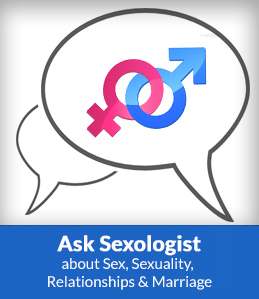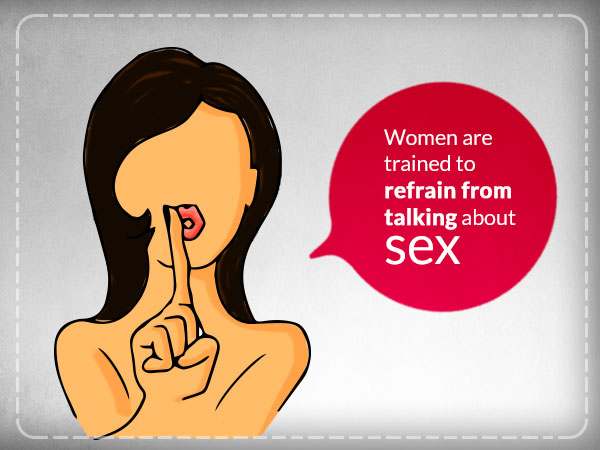Sexual & reproductive health for women is an important issue that needs to be discussed in an open and accurate manner. Note the stress on the word accurate? That is because there is a huge distortion of the truth out there, especially with regards to sexual health.
Due to a lack of a Comprehensive Sexuality Education in India, people are often confused about their own bodies. And since there is a lack of spaces where these issues can be discussed openly, a lot of folks might turn to problematic sources for information. And this in turn feeds into a culture of myths and half-truths. For example, some people think that it is possible to ascertain the virginity of a woman by doing some sort of a test –which isn’t true at all! This might even sound preposterous, but let us pause and consider the fact that a lot of the prime time crime based serials in India propagate this myth – and what kind of impact it has on the way people look at women’s sexuality.
Interestingly, when we talk of women’s health, reproductive health is regarded as an issue which ranks higher than 
As a sexuality educator, majority of the women’s questions on sexual health that I have encountered are around – painful penetrative sex and not being able to reach a climax. Which in itself might not be such a huge problem BUT there is a lot of shame and guilt associated with these issues. These women, who are clearly not able to enjoy the intercourse, are more concerned about not being able to please their partners!
And this is a direct result of the social conditioning and messages they receive from a very young age. After all, we have all been taught that sex is all about penetration, isn’t it? The imagery of a man taking away a woman’s virginity, hymen related myths in the society etc. – is all because of these problematic ideas. It is also funny how the society puts certain labels on a woman based on her sexual behaviour- if she has too much sex (whatever ‘too much’ qualifies for), she is a ‘slut’; if she has too little or does not care enough about sex, she is ‘frigid’. This patriarchal mindset and the fact that ours is a culture of silence, leaves these women confused and feeling like a ‘freak’.
It would be interesting to note that a lot of the discomfort during penetrative intercourse is often due to a lack of simple anatomical knowledge. Not many people realize that the majority of the women cannot orgasm due to vaginal intercourse. The clitoris happens to be the main sexual organ for the women but it is often neglected during love making.
Ideas of masculinity and femininity tends to affect how people behave inside their bedroom. Women are trained to refrain from talking about sex and men are too focused on their own orgasms – and thus, the penetrative intercourse often becomes unbearable for the woman. Add to this the fact that there is a lack of communication and understanding about what the woman truly needs.
A lot of the ideas about sex come from adult movies – but do keep in mind that these are made from an entertainment point of view. There is hardly any educational value to be found in these films. It is almost similar to expecting all Indian men to have a body type similar to a protagonist played by Hrithik Roshan (complete with 6 packs and all!). However, due to a lack of accurate sexuality education which is objective and non-value based, people do not comprehend that sex does not need to follow a linear routine (unlike the said movies). Love making can include a lot of activities and people can explore them with their partners as legit sexual techniques. There is no hierarchy of sexual acts. And therefore, penetrative sex does not come above foreplay activities – sure it can be valued more in a patriarchal society as it is one of the ways the man can reach a climax- BUT it does not mean that it is more pleasurable for the woman as well. And if a woman does not enjoy a particular act, there are hundreds of other activities that can increase intimacy between her and her partner. To be honest, there is no fixed routine that works the best during sex. It’s often trial and error. And if a woman cannot orgasm, it could be a result of an inability to communicate and/or due to a lack of understanding. A woman’s orgasm response is very different from that of a man – often slower in the beginning.
It is thus unfair that women have to bear the burden of the misinformation and often end up ‘faking’ their orgasms. Orgasm equality is definitely a sexual health related issue. Sexual compatibility is NOT a result of something magical – it includes constant communicating about each other’s needs. And that can only happen in a society that is not scared of sex!
Of course, there could be some medical reason behind these specific sexual health issues -for example, menopause could be responsible for painful sex and a decreased libido. In which case the woman should consult a trained doctor. However, caregivers’ and health service providers’ negative attitude regarding how they view sexuality can often have damaging effects on the self-esteem of the patients. The concept of older women enjoying a healthy sex life can often times be incomprehensible for the health professionals! This adds to the stigma and silence regarding geriatrics and sexuality.
Therefore, it is important for women to seek out sex positive sexual health information. Sex positive information does not shame people who want to explore their sexuality. In fact, it stresses on the important aspects of sexuality such as informed consent, pleasure, etc. And more importantly, it is time that medical professionals and counsellors move beyond the hetero normative ideas of partnership and intimacy – since this affects if and how women patients access sexual health services.






,